State and local governments long have been considered “laboratories of democracy” that spawn valuable innovation. But recently states have taken this a step farther entering a risky new phase that pits blue states against red ones and blue cities against red states, and threatens democracy as a whole. As opposed to tolerating policy experimentation by different jurisdictions, some leaders are seeking to impose their own policy views on other places. Taken to an extreme, this behavior likely would intensify conflict and escalate policy nullification on a broad scale.
Take, for instance, the recent intensification of arguments over immigration. Governors Ron DeSantis of Florida and Greg Abbott of Texas have bussed unwanted arrivals from the southern border to New York City, Washington, DC, and Martha’s Vineyard as a way to express their discontent with national policy. These leaders are upset over so-called “sanctuary cities” that are pro-immigrant and seeking to attract media attention to their cause. While successful at generating press coverage, this confrontational stance puts innocent people in the middle of policy disputes and disrupts social service delivery in the targeted states.
Another area is abortion policy where the Supreme Court reversal of Roe v. Wade turned that issue back to the states and transformed the politics of that subject. A number of states used that decision not only to outlaw abortion but to criminalize actions that provided help for those wanting abortions. The stark differences in how state legislatures have responded to the Roe aftermath suggests federalism is moving in a destructive direction and putting states on a collision path with one another.
Similar issues have popped in regard to marijuana legalization. For a number of years, that area has pitted states wanting to relax prohibitions and spawn new businesses against existing laws preventing interstate commerce involving illegal drugs or using the national banking system to transfer money. The resulting jurisdictional conflicts have strained federalism and made it difficult for businesses to know whose laws they should obey.
And in the gun area, California recently enacted a law allowing people to sue those who make or distribute assault weapons. Modeled after Texas legislation that enabled lawsuits against those who aid women seeking abortions, the legislation demonstrates how states are turning on one another and restricting personal activity on a much broader scale than before. It no longer is enough for states and localities to take decisive policy stances, but rather they are aiming their enforcement against people living elsewhere who have different points of view.
Even within individual states, there are risks for governance and democracy. Increasingly, there is preemption between red states and blue cities whereby Republican-controlled legislatures are putting major restrictions on the ability of Democratically-controlled cities to spend money, set policy, and address social issues. These within-state conflicts are eroding the capacity of cities to innovate and undertake useful policy experiments. By restricting local prerogatives, state legislatures are upsetting the balance of power within their boundaries and relegating cities to purely administrative functions.
From these and other actions, it appears federalism is entering an intolerant terrain that threatens democracy itself. There is a power reshuffling that likely will have profound ramifications for questions of who decides and what they decide on many topics. Large-scale political and institutional shifts on abortion policy, immigration enforcement, gun safety, and marijuana legalization are rippling through many jurisdictions and eroding the traditional prerogatives of state and local government.
In the past, trend-setting localities have piloted projects that experimented with new ideas and became models for the country as a whole. As part of our system of local rule, different jurisdictions had freedom to test policies such as welfare work requirements, school choice, and cannabis legalization, and that was considered a strength of American governance.
Yet in recent years, federalism has entered a new phase. In my Brookings Institution Press book, Power Politics: Trump and the Assault on American Democracy, I argue the extreme polarization and radicalization that afflicts contemporary politics has recast federalism in an entirely different light. States are innovating in more polarized and extreme directions, and criminalizing behavior that is perfectly lawful in other places.
These stakes are especially high given the fact that the Supreme Court has agreed to hear an elections case with the potential to alter how presidential elections operate. In a North Carolina lawsuit involving the primacy of state legislatures versus state courts in handling redistricting disputes, justices could make a decision that elevates the role of state legislatures in choosing Electoral College electors and scale back the ability of state courts to adjudicate future election disputes. The result could be legislatures certifying elector slates for a candidate who has not gained the popular vote majority in that state. Such a move would generate considerable chaos in federal elections and usher in undemocratic practices that would weaken the popular vote and limit the ability of voters to hold leaders accountable.
If these and other policy moves spread, what traditionally have been considered strengths of American democracy, i.e., the ability of states and localities to experiment, chart their own policy paths, and represent the views of people within their own jurisdictions, could shift in destructive directions. Rather than protecting democracy through tolerant and variated approaches, the differential responses of states and localities could intensify regional conflict and weaken the glue that holds the country together. Our current political system may not survive the high level of conflict which results when states nullify laws from other jurisdictions and criminalize behavior that is legal elsewhere.
The Brookings Institution is committed to quality, independence, and impact.
We are supported by a diverse array of funders. In line with our values and policies, each Brookings publication represents the sole views of its author(s).

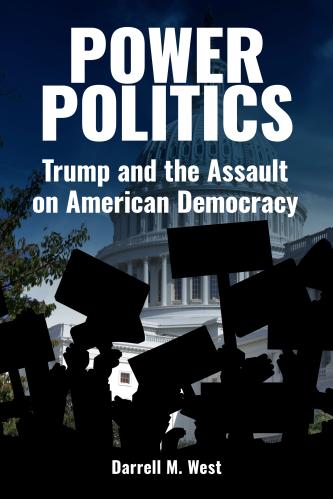
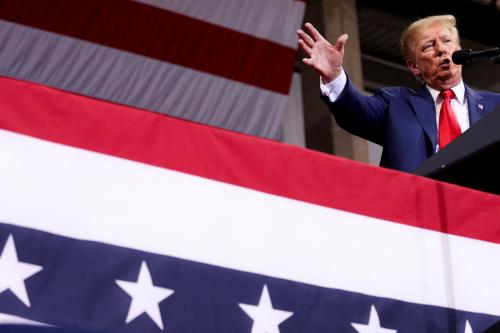
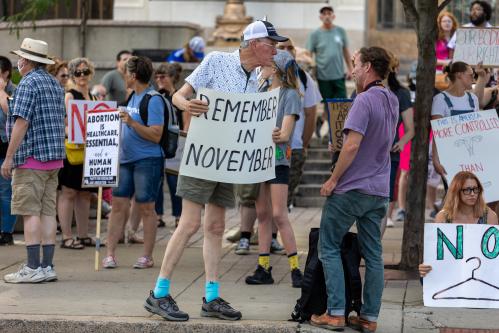
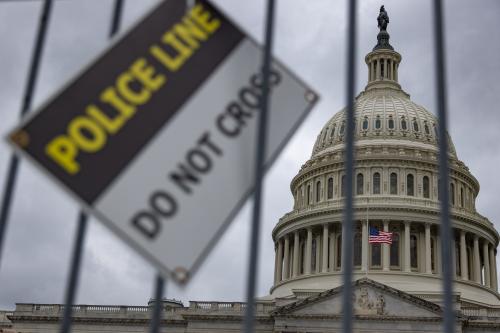



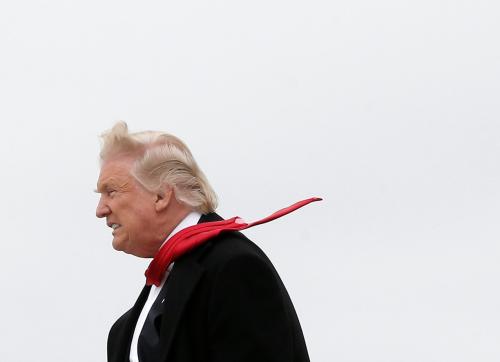
Commentary
Why federalism has become risky for American democracy
September 23, 2022